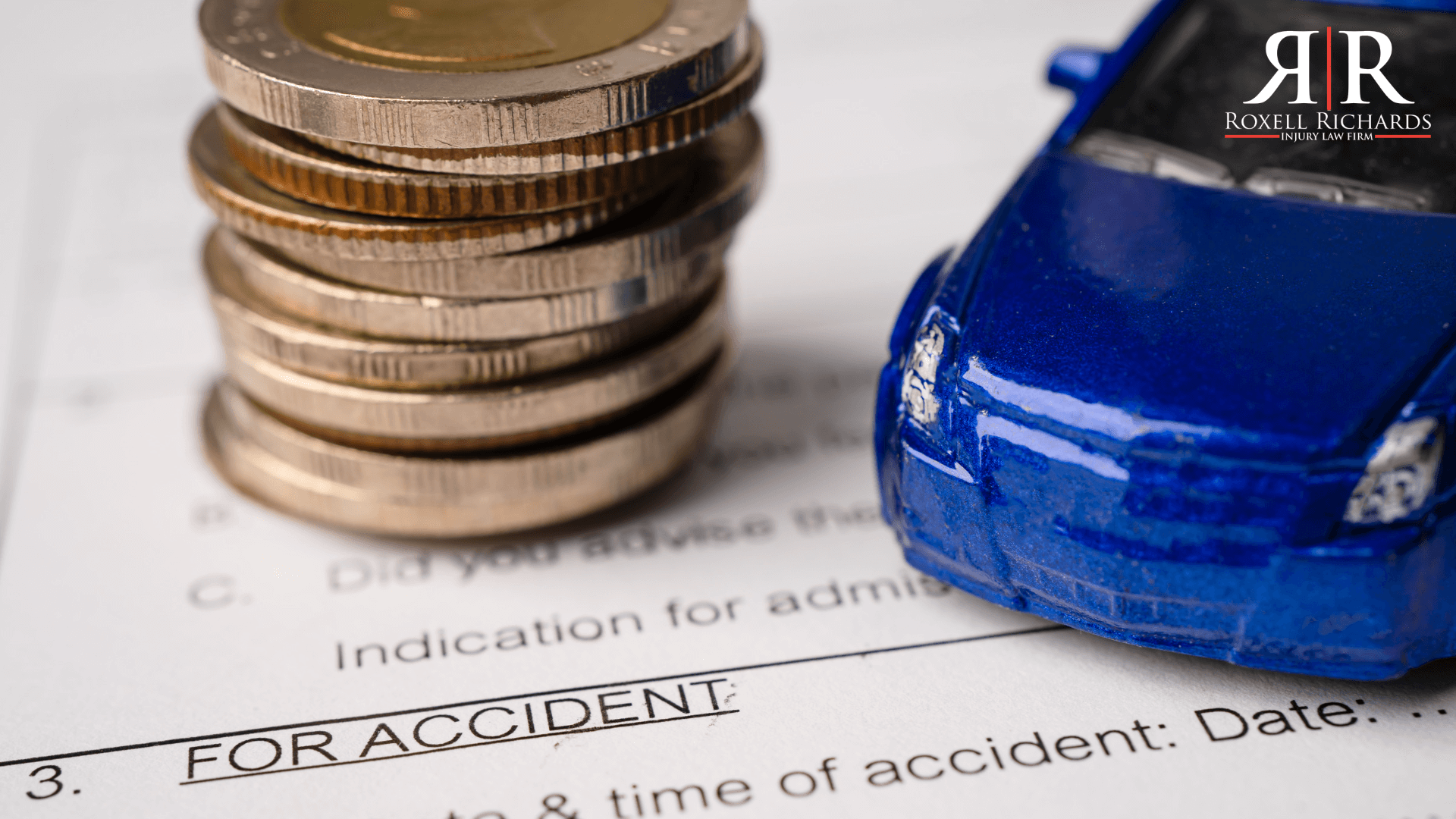Car accidents can be scary and confusing for everyone involved. If you live in Houston, Texas, it’s essential to know what to expect if you are ever in a car crash.
In this blog, we will explore various aspects of car accidents in Texas, particularly in Houston, and shed light on their average costs.
Texas: a No-Fault State for Car Accidents?
Regarding car accidents, one of the fundamental aspects that can significantly impact the resolution process is the concept of fault. And in the United States, two main insurance systems governing car accidents are no-fault and at-fault (also known as tort).
No-Fault Insurance System Explained:
In states with a no-fault insurance system, drivers must carry personal injury protection (PIP) coverage. So, in the event of an accident, each driver’s insurance company compensates their respective policyholders for medical expenses, regardless of who caused the collision. And this system is designed to expedite claims processing and reduce the burden on the court system.
At-Fault Insurance System Explained:
In states with an at-fault insurance system, the driver determined to be responsible for causing the accident is liable for the damages. And including injuries incurred by the other parties involved. Therefore, the at-fault driver’s insurance company must cover the costs of the victim’s medical bills, property damage, and other losses.
Texas: An At-Fault Insurance State:
In the case of Texas, it follows the at-fault insurance system. And this means that if you are involved in a car accident in Texas, the driver found to be at fault is responsible for compensating the other driver(s) and passengers for their injuries and damages. This typically involves the at-fault driver’s insurance company handling the claim and providing compensation.
What is the Car Accident Rate in Houston?
Houston, the largest city in Texas and one of the most populous in the United States, experiences significant traffic on its roads and highways.
And with such a dense population and a bustling urban environment, it is crucial to understand the car accident rate in Houston. This is to gauge the risks and take appropriate precautions while driving.
In fact, more than 2.3 million people live in Houston. And Houston is the most populated city in Texas, with the highest number of registered vehicles and auto accidents.
However, the overwhelming quantity of Houston car accidents cannot be attributed to population. In fact, Houston accounts for 16% of Texas’s car accidents while having only 8% of the state’s population. Moreover, Houston has twice as many car accidents as it does based on its population.
Factors Influencing Car Accident Rates:
Various factors influence the car accident rate in any city, and Houston is no exception. Some of the key factors that contribute to the frequency of car accidents in the city include:
- High Population Density: As a major urban center, Houston has a dense population and many vehicles on the road. And this high concentration of people and vehicles can lead to increased chances of accidents.
- Traffic Congestion: Houston is known for its traffic congestion, especially during peak hours. Also, congested roads can increase the likelihood of accidents, especially rear-end collisions and fender benders.
- Weather Conditions: Houston’s climate can be unpredictable, with occasional heavy rainfall and flooding. And adverse weather conditions can make driving hazardous and contribute to accidents.
- Driver Behavior: The behavior of drivers on the road significantly impacts the car accident rate. And that reckless driving, speeding, distracted driving, and driving under the influence of alcohol or drugs are all factors that can lead to accidents.
- Road Infrastructure: The condition of the roadways and infrastructure can also influence the car accident rate. Also, poor road conditions, lack of proper signage, and inadequate lighting can increase the likelihood of accidents.
Efforts to Improve Road Safety:
Houston’s local authorities, law enforcement agencies, and community organizations continually work to improve road safety and reduce the car accident rate. These efforts may include:
- Public Awareness Campaigns: Educational campaigns aim to raise awareness about safe driving practices, the dangers of distracted driving, and the importance of obeying traffic laws.
- Traffic Law Enforcement: Law enforcement agencies actively monitor and enforce traffic laws to deter reckless driving and ensure compliance.
- Road Maintenance and Improvement: Regular maintenance and improvement of road infrastructure help address safety concerns and reduce accidents caused by poor road conditions.
- Public Transportation Alternatives: Providing efficient public transportation options can help reduce the number of vehicles on the road and alleviate traffic congestion.
What Takes Place in Texas Following a Car Accident
A car accident can be a disorienting and stressful experience for everyone involved. Like most states, certain steps and procedures typically follow a car accident in Texas. Knowing what to expect and how to handle the situation responsibly and lawfully is essential. Here’s a comprehensive guide to what happens after a car accident in Texas:
- Ensure Safety and Seek Medical Attention: After a car accident in Texas, prioritize safety and seek medical help for injuries.
- Contact Local Authorities: Report the accident to the police, especially if there are injuries, fatalities, or significant property damage.
- Exchange Information: Share contact and insurance details with the other driver(s) involved in the accident.
- Document the Scene: Take pictures of the accident scene and relevant details if possible.
- Report the Accident to Your Insurance Company: Inform your insurance company promptly and provide accurate information about the accident.
- Seek Legal Advice: Consult a personal injury attorney for complex cases or uncooperative insurance.
Responsible for Paying for a Car Accident in Texas
Determining who pays for a car accident in Texas depends on the state’s at-fault insurance system, which assigns liability to the driver responsible for causing the accident.
In most cases, the at-fault driver’s insurance company compensates the other driver(s) and passengers for their injuries and damages.
Also, determining the cost of most car accidents is challenging since it depends on various factors. And this includes the accident’s severity, the number of vehicles involved, the extent of property damage, and the injuries sustained by drivers and passengers.
Let’s explore how the process works:
Establishing Fault
Authorities and insurance adjusters investigate to determine fault after a car accident.
The At-Fault Driver’s Insurance Coverage
The at-fault driver’s insurance company is responsible for covering damages and injuries of other parties.
Liability Coverage
Mandatory liability coverage in Texas provides financial protection for at-fault drivers with specific coverage amounts.
Filing an Insurance Claim
Non-fault drivers or passengers file insurance claims, including accident details and evidence, with the at-fault driver’s insurance company.
Your Insurance Coverage
Your own insurance coverage, like uninsured/underinsured motorist coverage, can help if the at-fault driver is uninsured or underinsured.
In fact, accident forgiveness is an optional insurance feature available in Texas. And it protects policyholders from premium rate increases after their first at-fault accident.
But not all insurance companies offer this feature, and eligibility criteria may vary. Policyholders should carefully review the terms and consider factors. For example, eligibility requirements, coverage period, and additional costs before choosing accident forgiveness coverage.
Legal Action
Consider legal action with a personal injury attorney if the at-fault driver’s insurance is uncooperative.
In Texas, lawyers usually work on a contingency fee basis for car accident cases. This means their fees are a percentage of the settlement or award, typically ranging from 33.33% to 40%.
In fact, clients generally don’t owe any legal fees if they don’t win the case. And cients should discuss the fee arrangement and additional expenses with their attorney during the initial consultation to understand the terms clearly.
Shared Fault (Comparative Negligence)
Texas follows a “modified comparative negligence” rule, allowing recovery if less than 51% responsible for the accident.
So, the at-fault driver’s insurance company is responsible for paying for car accidents in Texas. Also, including their insurance coverage, especially liability coverage, is crucial for compensating other parties involved.
And understanding the insurance process and your rights is essential to ensure fair compensation for injuries and damages after an accident.
Can You Sue in Texas for a Car Accident?
In Texas, car accidents are subject to legal action. If you are involved in a car accident and believe that another driver’s negligence or wrongful actions caused the collision, you can seek compensation for your injuries, damages, and losses through a civil lawsuit.
Determining Liability
Before deciding to sue, it’s essential to establish liability for the accident. Because Texas follows an at-fault insurance system. Meaning the driver found responsible for causing the accident is typically liable for compensating the other parties involved.
And to have a strong case for a lawsuit, you must gather evidence that demonstrates the other driver’s negligence, such as:
- Eyewitness statements
- Police reports
- Photographs of the accident scene
- Traffic camera footage
- Skid marks or debris patterns
- Medical records and expenses
- Repair estimates for your vehicle
- Documentation of lost wages and other losses in money
Statute of Limitations
Awareness of the statute of limitations is crucial for filing a car accident lawsuit in Texas. In most cases, the statute of limitations is two years from the accident date. And if you fail to file a lawsuit within this time frame, you may lose your right to seek compensation through the court system.
Types of Damages
When you sue for a car accident in Texas, you may seek various types of damages, including:
- Medical Expenses: Compensation for past and future medical bills related to the injuries sustained in the accident.
- Lost Wages: Reimbursement for income lost due to missed work caused by the injuries.
- Property Damage: Payment for repairing or replacing your vehicle or other damaged property.
- Pain and Suffering: Compensation for the accident-related physical, emotional, and mental agony.
- Loss of Enjoyment of Life: Damages awarded when the accident leads to a diminished ability to enjoy daily activities or hobbies.
- Punitive Damages: In some cases, if the at-fault driver’s actions were particularly egregious, punitive damages may be awarded to punish them and deter similar behavior in the future.
Comparative Negligence
It’s important to understand that Texas follows a modified comparative negligence rule. This means that if both parties are found to share some degree of fault for the accident, their responsibility is considered.
You may still recover damages if your responsibility is less than 51%. However, if your responsibility is 51% or more, you may not be eligible for compensation.
Legal Representation
Suing for a car accident in Texas can be complex, and insurance companies may try to minimize their liability.
Hiring an experienced personal injury attorney with best case results and testimonials can significantly strengthen your case. An attorney can help you manage the complexity of the law, bargain with insurance providers, and fight for your rights and just recompense.
Determining the average settlement for a car accident in Texas can be challenging due to the many factors influencing settlement amounts.
Car accident settlements depend on the unique circumstances of each case, including the severity of injuries, property damage, medical expenses, lost wages, and other damages suffered by the injured parties. As such, settlements can vary significantly from one case to another.
Pain and Suffering Damages in a Texas Car Accident
Pain and suffering damages in a Texas car accident refer to compensation for the physical and emotional distress experienced by the injured party. Unlike economic damages with a specific monetary value, pain and suffering damages are subjective and aim to compensate for intangible effects on the injured person’s life.
Types of Pain and Suffering Damages:
- Physical Pain: Actual discomfort and pain resulting from injuries, including ongoing pain during recovery.
- Emotional Distress: Anxiety, depression, fear, or PTSD due to the traumatic event.
- Mental Anguish: Psychological suffering and strain after the accident.
- Loss of Enjoyment of Life: Inability to engage in once-enjoyable activities due to the injuries.
Calculating Pain and Suffering Damages:
Determining pain and suffering compensation involves considering factors such as the nature and extent of injuries, duration, and intensity of pain, impact on daily life, scarring, prognosis, and long-term effects on well-being
Role of a Lawyer in a Car Crash in Houston, Texas
- A lawyer provides legal advice and guidance to individuals involved in a Texas, car crash in Houston, ensuring they understand their rights and legal options.
- Lawyers conduct thorough investigations into the accident, gathering evidence such as police reports, witness statements, and medical records to build a strong case for their clients.
- Lawyers assess liability in the car crash, reviewing applicable laws and working with accident reconstruction experts if needed to establish fault.
- They negotiate with insurance companies to ensure fair and just compensation for their clients, as insurance companies often try to minimize payouts.
- Lawyers assess the full extent of damages suffered by their clients, including medical expenses, property damage, lost wages, and pain and suffering, to pursue fair compensation.
- A Houston car accident lawyer ensures timely filing of personal injury claims, adhering to Texas’ statutes of limitations to preserve their clients’ rights to seek compensation.
In conclusion, being aware of the car accident costs and legal implications in Houston, Texas, can help you stay prepared and make informed decisions if you ever encounter a car crash.
Always prioritize safety while driving, and in case of an accident, seek legal advice and medical attention promptly.






